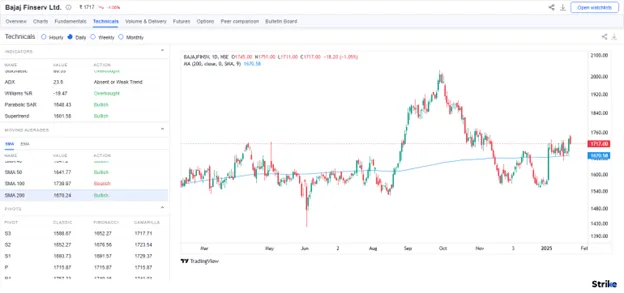Which Factors Affect Financial Sector Share Price?
Three main factors influence the share prices of financial sector companies in India. These include interest rates, regulatory changes, and market sentiment, each playing a pivotal role in shaping investor behavior and stock performance.
Interest Rates
Interest rates directly impact the profitability of financial institutions such as banks, non-banking finance companies (NBFCs), and insurance firms. When the Reserve Bank of India (RBI) raises interest rates, borrowing becomes expensive for consumers and businesses.
Regulatory Changes
The RBI’s monetary policies and regulatory guidelines significantly affect the financial sector. For instance, changes in the repo rate or cash reserve ratio (CRR) influence liquidity and lending capacity. Tightening monetary policy through higher rates reduce consumer spending and corporate earnings, negatively impacting stock prices of financial institutions. Conversely, accommodative policies boost liquidity and encourage economic activity.
Market Sentiment
Investor sentiment is a crucial driver of stock prices in the financial sector. Positive sentiment fueled by strong economic indicators or foreign institutional investor (FII) inflows lead to bullish trends in banking stocks.
Financial sector share prices in India are shaped by a combination of macroeconomic factors such as interest rates and regulatory policies as well as investor confidence driven by market sentiment.
How to Choose the Best Financial Services Stocks?
To choose the best financial services stocks, it's important to conduct thorough research and analysis on the company's financials, business model, growth prospects, and industry trends. Technical analysis of the stock's price patterns and indicators can provide insights into momentum, support/resistance levels, and overall sentiment. Using tools like Strike helps identify technical buy or sell signals.
Evaluating financial metrics like profit margins and revenue growth is also important when conducting fundamental analysis of auto stocks.
Comparing a company's valuations and financial strength to industry peers determine if a stock is under or overvalued. It's ideal to choose stocks with strong fundamentals that are leaders in their subsector, such as major banks, investment firms, insurance providers, or financial technology companies. Reviewing analyst reports provide an independent, professional opinion on a company's outlook and target price. But it's important to conduct your own due diligence as well.
How to Invest in Finance Sector Stocks?
To choose the best financial services stocks, it's important to conduct thorough research and analysis on the company's financials, business model, growth prospects, and industry trends. Technical analysis of the stock's price patterns and indicators can provide insights into momentum, support/resistance levels, and overall sentiment. Using tools like Strike helps identify technical buy or sell signals.
Bajaj Finserv Ltd. is one of the major stocks of Nifty Financial Services sector.
The technical section offers multiple indicators and their readings. On the left side, plot these indicators on the chart to carry out technical analysis with ease. A range of popular indicators like RSI, MACD, Stochastic, ADX, Williams %R, Parabolic SAR, supertrend, Multiple moving averages (simple and exponential) and 3 kinds of Pivot Points (Classic, Fibonacci and camarilla) are available to select and users can read these readings on Hourly, Daily, Weekly and Monthly time frames.

Why Should You Invest in Financial Services Stocks?
The main reason to invest in financial services stocks in India is their critical role in driving the country’s economic growth. The services sector, which includes financial services, contributes approximately 55% to India’s GDP as of FY24. Financial services are pivotal for enabling credit growth and capital formation, essential for supporting India’s ambition to achieve a $30 trillion GDP by 2047. This positions the sector as a key driver of long-term economic expansion.
Another compelling factor is the robust credit growth in the Indian economy. Industry credit is expected to grow at over 12% annually, fueled by rising demand for loans across sectors. This growth is supported by improved bank balance sheets, low non-performing assets (NPAs) (approximately 2.5%-3%), and increasing profitability.
Rising domestic demand further strengthens the case for investment. Rapid urbanization, increasing disposable incomes, and the growth of e-commerce have driven demand for retail loans, insurance products, and investment services. Additionally, India’s Services PMI has consistently remained above 50 since August 2021, indicating continuous expansion in business activity.